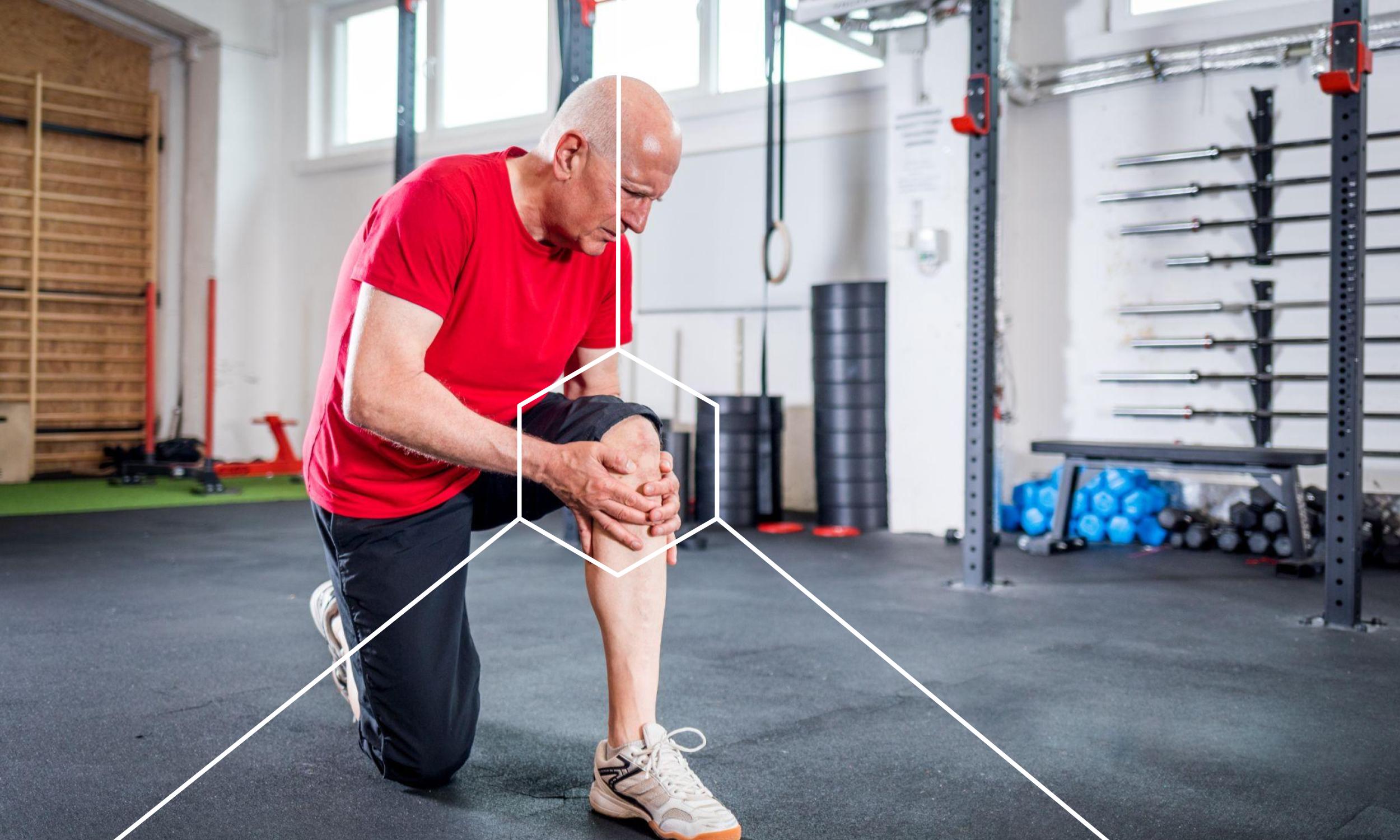
Inflammation can be painful. In fact, it can be so painful that it turns mundane, regular activities into painful chores. Understanding the causes of inflammation can help us avoid it. This article will go over the causes of inflammation, the types of inflammation, and inflammation symptoms.
What Causes Inflammation?
Inflammation isn’t always a bad thing. In fact, it’s often a good thing. When our body detects an intruder - whether that be bacteria or infection - it launches a biological response to try and remove it. This is when you see the signs of inflammation such as redness, swelling, heat, and even pain. Here are some of the things that can cause inflammation:
- Exposure to a substance such as a bee sting or dust
- Injury
- Infection
While the symptoms of inflammation are undesirable, they are often better than the alternative. The good type of inflammation - mentioned above - is known as acute inflammation.
What are the Types of Inflammation?
There are two different types of inflammation; acute and chronic. Acute inflammation, as we mentioned above, is the good type of inflammation. This is our body’s normal response to invaders who can cause harm. Our body relies on acute inflammation to protect against bacteria and infection.
Chronic inflammation, on the other hand, is undesirable and can lead to long-term health effects. This type of inflammation happens when the body mistakes otherwise healthy body parts for harmful invaders. An overactive immune response can lead to tissue death, thickening, and scarring of connective tissue.
What are the Symptoms of an Inflammatory Response?
Understanding inflammation symptoms can help us understand when our body is dealing with a harmful invader. It can also help us know when we may be dealing with chronic inflammation. Here are some of the signs of inflammation you should be on the lookout for:
- Redness
- Swollen joints
- Joint pain
- Joint stiffness
- Flu-like symptoms
Keep in mind; inflammation shares many symptoms with other health issues. If you are experiencing any of the symptoms listed above, you should speak with a doctor.
What is the Inflammatory Response Process?
The inflammation process begins when the body detects tissues that have been damaged by bacteria, trauma, toxins, heat, or other causes. Damaged cells release chemicals like histamine, bradykinin, and prostaglandins. These chemicals cause blood vessels to leak fluid into the tissues, which leads to swelling.
When the body detects this fluid, white blood cells are mobilized to ‘eat’ germs and dead or damaged cells. This process is also known as phagocytosis. Phagocytosis often leads to pus formed from a collection of dead tissue, dead bacteria, and live and dead phagocytes.
What Causes Inflammation In the Joints?
Swelling and inflammation in the joints happen when there’s an increase in the fluid mentioned above. Joint swelling can be expected with different types of arthritis, infections, and injuries. Here are some joint inflammation causes:
- Osteoarthritis (OA) - This is a common form of arthritis that comes with aging or during the recovery process following an injury
- Rheumatoid arthritis (RA) - RA can happen at any age and can be very painful
- Gout - Gouty arthritis strikes out of nowhere with severe joint pain, swelling, warmth, and redness
Inflammation in the joints can also be caused by ankylosing spondylitis, psoriatic arthritis, and infectious arthritis.
What Causes Chronic Inflammation in the Body?
Chronic inflammation can lead to long-term health issues - especially if left unchecked. Understanding the causes of chronic inflammation can help us avoid chronic inflammation. Here are some of the common causes:
- Untreated cases of acute inflammation like infection or injury
- Autoimmune disorders
- Long-term exposure to irritants like industrial chemicals or polluted air
We should note that these don’t cause chronic inflammation in everyone. It’s not uncommon for chronic inflammation to not have a clear underlying cause.
What are Inflammatory Foods To Avoid?
Our diets play a significant role in inflammation in the body. A balanced and nutritious diet can help prevent chronic inflammation and can reverse inflammation. Just as important as the foods you do eat are the foods you don’t eat. Here are some foods that cause inflammation:
- Sugary food - Added sugar--table sugar and high fructose corn syrup--can increase inflammation and lead to disease. Eating foods high in sugar can increase your risk of obesity, insulin resistance, diabetes, fatty liver disease, and cancer
- Artificial trans fats - Experts believe artificial trans fats are some of the unhealthiest fats you can eat. These fats can cause inflammation and increase your risk of disease
- Vegetable and seed oils - Vegetable oils like soybean oil can promote inflammation. This is due to their high omega-6 fatty acid content
- Refined carbs - Carbohydrates aren’t inherently wrong, but refined carbs can drive inflammation. Refined carbs have had most of their fiber removed and are generally found in candy, bread, pasta, pastries, and sugary soft drinks
- Excessive alcohol - Moderate alcohol consumption can have some health benefits, but high consumption levels can be dangerous
We’re not saying you should never eat these foods again. However, you should try to limit your intake of these foods as much as possible.
Supplements May Help
One supplement that can reduce inflammation is spermidine. This is because spermidine helps induce something called autophagy. This is the body’s process of replacing old and potentially damaged cells with newer, healthier cells. Autophagy means ‘self-eat.’
This process helps keep you feeling and looking young while also dramatically lowering your chances of developing aging diseases such as Parkinson’s and Alzheimer’s. While it is possible to get your recommended daily intake of spermidine through your diet, it’s recommended to take supplements so you ensure you get the correct dose. Simply taking your supplements with your dinner is a great way to remember to take spermidine supplements every night.







